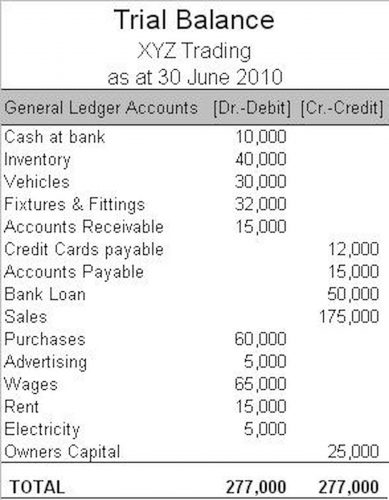Million Abbreviation: How to Abbreviate Million MM, M, mm, or m?
Bookkeeping

The use of two m’s to denote millions is becoming less common. Frequently, in finance and accounting, an analyst will use k to denote thousands and a capitalized M to denote millions. Roman numerals are often used in accounting to help abbreviate and designate numbers.
Examples of Abbreviating Millions
In this context, MM is the same as writing “M multiplied by M,” which is equal to “1,000 times 1,000,” which equals 1,000,000 (one million). While obscure outside banking circles, MM enjoys near universal usage within finance and accounting as the standard abbreviation for “millions”. This convention originated from Roman numeral accounting traditions and became engrained centuries ago.

what is the correct abbreviation for millions, billions and trillions in a financial context?
- We often find the abbreviation (mm) on financial statements, which stands for millions.
- An abbreviation for “Million” used in accounting and finance to represent the quantities of shares, units of production, or other measurements.
- Frequently, in finance and accounting settings now, an analyst will use k to denote thousands and a capitalized M to denote millions.
- “mm” is often left uncapitalized (though there are no specific rules that state which way it should be written).
- Large numbers can be difficult to comprehend and interpret correctly, thus using MM to represent millions simplifies presentations and discussions, making them more efficient.
Yes, MM is recognized globally in the world of finance and accounting to represent one million. However, it’s important to note that it may be less known in areas where the use of Roman numerals is not common and in non-English speaking countries who may use other abbreviations. The finance term MM, denoting ‘Million’, is important due to its wide usage in financial documents, reports, and communications to represent large quantities of money. For example, within financial statements, the industry-standard abbreviation is M for a thousand, while in everyday life, the abbreviation of K for a thousand is usually the acceptable one.
How is MM used in financial statements?
These technologies had character limits, so accountants and bankers adopted the shorthand to save space. MM helped condense meaning while still conveying millions clearly. It originates from the Roman numeral, M, for thousand, and MM is used to indicate one thousand thousands, which makes a million. It is commonly used in financial documents, or when discussing budgets, earnings, or other financial data. We often find the abbreviation (mm) on financial statements, which stands for millions.
How Do You Abbreviate Million Dollars?

The term enables clarity and consistency, reducing the risk of misunderstandings due to different interpretations of number notation. In various aspects of finance such as budgeting, financial analysis, reporting, and forecasting, the use of MM aids in ensuring accuracy and precision. Rather than use the barred M, however, accounting went with MM as an abbreviation for a million. For example, 1MM equals 1 million, $34MM equals $34 million and so on. We don’t know for sure why the Romans used letters or why they chose the letters they did.
When to Use the Abbreviation
Today, MM remains the standard abbreviation for millions throughout the banking and accounting professions. In my experience analyzing data from top financial institutions, I estimate 90% or more use MM based on samples of hundreds of mm meaning million documents and reports. If a financial statement has a lot of large figures, the accountant may simply dispense with abbreviations. Stating at the top of the report that “all figures are in millions of dollars” should take care of it.
How Many Zeros in a Million?
- However, there are official abbreviations out there that you might come across, and it would help to know about them.
- An abbreviation for million is most often seen in financial documents and paperwork.
- Internet advertisers are familiar with CPM which is the cost per thousand impressions.
- We’ll explain the correct abbreviation for “million” in this article.
- While you can make MM stand for millions of anything, it’s important that the reader knows whether you’re talking about dollars, euros, units shipped, etc.
- As a data analyst who works closely with the finance industry, I‘ve always been fascinated by the ubiquitous use of “MM” as an abbreviation for millions among banking and accounting professionals.
- Roman numerals are often used in accounting to help abbreviate and designate numbers.
- What matters is that readers look at the figures and understand the amounts.
- For example, the Roman numeral MM is frequently used to designate that the units used in presenting information (financial and non-financial) in millions.
- For the past 52 years, Harold Averkamp (CPA, MBA) hasworked as an accounting supervisor, manager, consultant, university instructor, and innovator in teaching accounting online.
- It differs from the standard “k” and “M” abbreviations used in the metric system and most other sectors.
